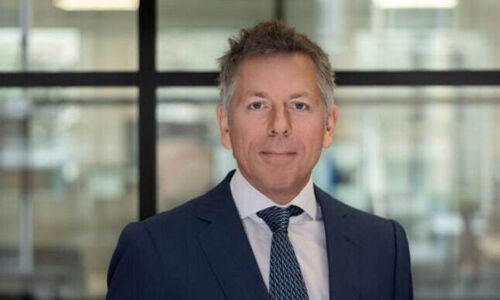David Benamou: «Iqbal Khan is the Logical Successor»
French asset manager David Benamou of Axiom Alternative Investments tells finews.asia why UBS’s integration of Credit Suisse remains on track, why the unresolved AT1 saga still matters – and which executive he views as the natural heir to CEO Sergio Ermotti.
David Benamou, Axiom was long among UBS investors. How does that look today? Do you still hold a stake?
We currently hold UBS bonds, but no longer have any equity positions. We used to, but we scaled those down over the course of the year.
How do you assess UBS’s situation after the third quarter?
Operationally, UBS is in very solid shape. Net inflows are strong, and the Credit Suisse integration – despite some recent delays in client migration – is largely on track.
The bank’s three pillars – Switzerland, Asia, and the US – are all developing positively. We continue to see substantial growth potential, particularly in Asia.
Where do you see risks?
Two issues cloud the picture. First, the legal uncertainty surrounding Credit Suisse’s AT1 bonds. The Federal Administrative Court ruled that the write-off was unlawful. Should the ruling be upheld, UBS is unlikely to come away untouched. The bank appeared visibly caught off guard by the verdict, and its communication was not particularly convincing.
Second, the debate around Switzerland’s new capital requirements. Initially, the regulatory proposals looked excessive, but a compromise now appears to be emerging that aligns more closely with the EU.
That would be a more reasonable outcome, and would likely limit the additional capital needs to 4-7 billion francs, rather than the 26 billion francs originally cited.
Is UBS fundamentally on track?
Yes, absolutely. Operationally, everything is running smoothly. CEO Sergio Ermotti has a clear long-term strategy to position UBS along the lines of Morgan Stanley – capital-light, global, and centered on wealth management.
The management team is strong: Iqbal Khan, Rob Karofsky, and Sabine Keller-Busse are delivering. The bank is well-led. The problem lies outside the bank: regulation and politics are creating uncertainty that UBS cannot control.
Is the AT1 dispute a real risk for UBS?
It depends on how the legal process unfolds. In Switzerland, these proceedings tend to move efficiently, so a resolution should be foreseeable.
If UBS must compensate investors, it would affect capital but not threaten the bank’s stability. Once clarity is reached, the issue will likely fade.
Will UBS relocate its headquarters to the US?
No. That discussion was more a tactical reaction to domestic political pressure. Relocation would, in my opinion, be counterproductive.
UBS is global, but its foundation is Swiss – not least because of its brand and the trust it commands worldwide. UBS without a Swiss home base would no longer be UBS.
Does moving to the US make sense at all?
On paper, yes – because of more favourable capital treatment. But Switzerland could retaliate, making life difficult for UBS. In any case, UBS is hardly a «Swiss bank» anymore – most of its business is in the US and Asia.
Switzerland is a mature market with limited growth, whereas Asia and the US continue to expand strongly.
Ermotti’s strategy clearly points toward US growth, likely through acquisitions. Some investors are cautious, as the US is a more demanding regulatory environment. Still, UBS has the team and the model to succeed there.
Has Swiss politics gone too far with regulation?
Absolutely. The proposed capital rules far exceeded international standards and risked undermining Switzerland’s financial competitiveness.
Safety is not achieved through excessively high capital buffers, but through a balanced combination of risk, return, and robust oversight. Fortunately, political common sense now seems to be prevailing.
How do you assess the integration of Credit Suisse?
Very positively.
Were you surprised that the process has gone so smoothly?
No.
Why not?
UBS knew exactly what it was taking on. The business models of the two banks are highly similar.
The integration is being managed professionally and communicated transparently. Minor delays in client migration are entirely normal in a project of this scale.
Would you expect such execution only from a Swiss bank?
(laughs) UBS certainly operates with Swiss thoroughness, but also because it had a decade of Credit Suisse crises as preparation. UBS’s leadership understood very clearly what the takeover would involve.
What happens after the integration? Will UBS shift to growth mode?
UBS will need to take the next step. For me, the direction is clear: the focus will be the US market. That is where the bank’s future growth will be determined – potentially through acquisitions.
Innovation, such as AI-driven advisory, will play a role, but it will not be the central theme. The next milestone will be US expansion.
But Ermotti is cautious. He will wait for stable results before announcing any major moves – likely in 2026 or 2027, shortly before he steps down.
Will Iqbal Khan be the next CEO?
Yes, I believe so.
Why?
Khan embodies exactly the profile UBS needs: international, growth-oriented, and rooted in wealth management – precisely what Ermotti’s «Morgan Stanley strategy» is aiming for. Rob Karofsky will remain essential for the US business. Khan is the logical successor.
And the old «Spygate» affair involving Khan?
No longer an issue. It is forgotten. Politics will always influence CEO appointments, but I do not believe the market views it negatively anymore.
Could an external candidate still take the top job?
Unlikely, in my view. UBS has strong internal candidates with credibility and execution experience.
Only if the market were to reject the US strategy could an external candidate become an option – and that would have to be someone of exceptional stature.
David Benamou is a managing partner and chief investment officer of Paris-based asset manager Axiom Alternative Investments. He joined the firm after eleven years at Société Générale, where he served as Deputy Head of Structured Capital Finance. Founded in 2009, Axiom manages 3.8 billion euros in assets and maintains additional offices in London, Geneva, and Milan.




























